Five talking points from the Tour of Flanders 2021
From Deceuninck's success to Van Vleuten's repeat - don't miss these moments from a thrilling day of racing
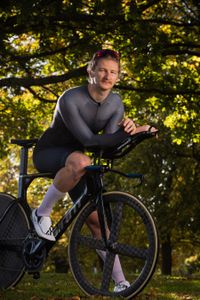
Deceuninck triumphant again on an absorbingly attritional Tour of Flanders
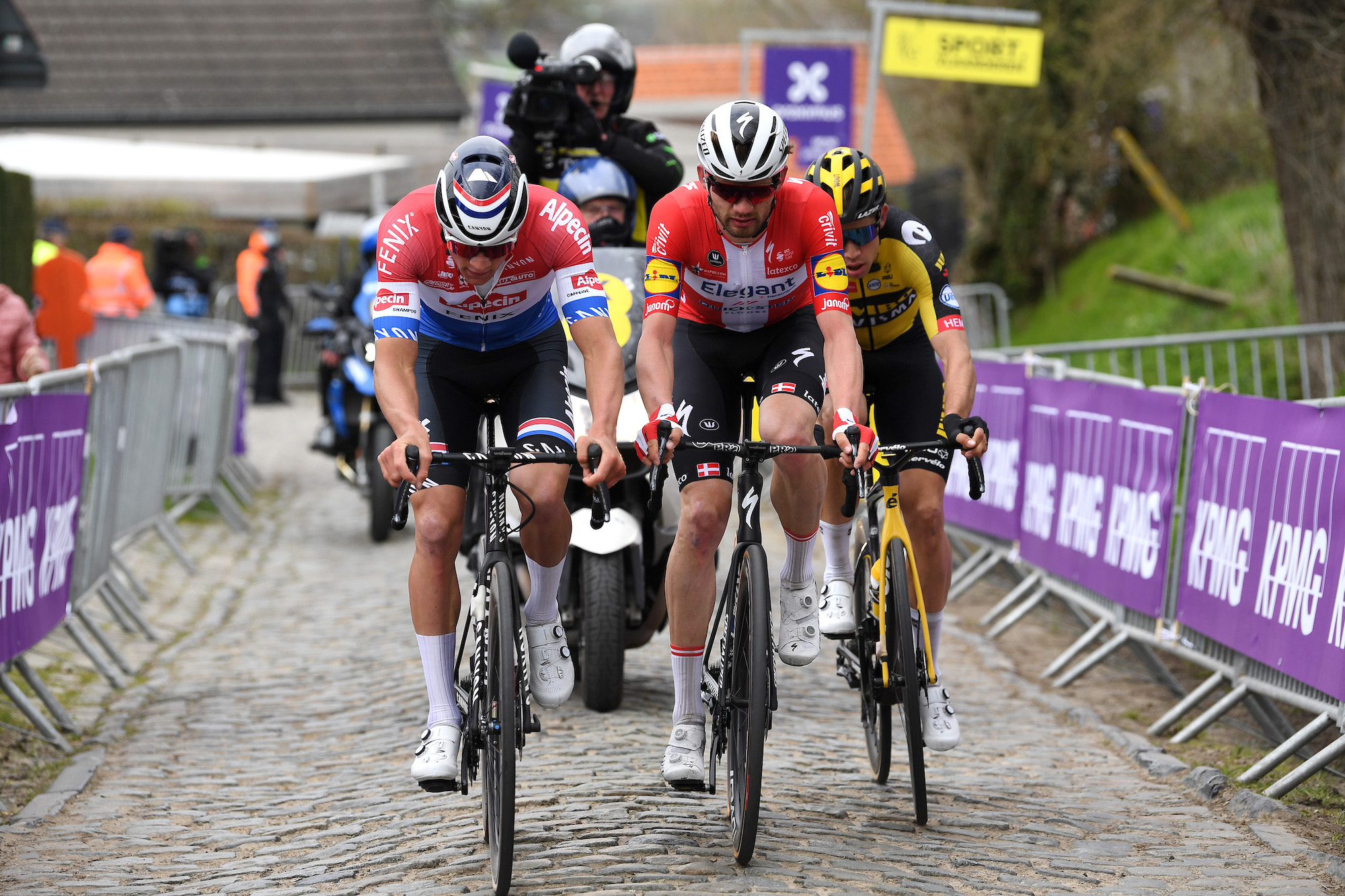
This year’s Tour of Flanders was billed as a struggle between team strength vs individual strength. In a tactical race, Elegant-QuickStep (renamed from Deceuninck - Quick-Step for this race) would have the advantage thanks to their strength in numbers; in an attritional race, the might of either Mathieu van der Poel (Alpecin-Fenix) or Wout van Aert (Jumbo-Visma) would be expected to come out on top.
What we weren’t prepared for was an attritional race won by one of the Elegant-Quick-Step riders, but ultimately that’s exactly what happened, as Kasper Asgreen went mano y mano against both Van der Poel and Van Aert, and emerged triumphant.
With 20km left to ride, as the final climb of the Oude Kwaremont approached, Elegant-Quick-Step appeared to be at a disadvantage. Asgreen had gone clear in a three-man leading group with Van Aert and Van der Poel, but without a team-mate with him the odds seemed to be against him. Behind, the team were also understaffed relative to their usual standards, with Florian Sénéchal and a fatigued Julian Alaphilippe their only representatives in a chasing group of about fifteen riders.
It was therefore up to Asgreen to deliver the team victory against the fearsome duo — and, stunningly, he managed to do so. He just about managed to cling on as Van der Poel produced another of his brutal accelerations on the Oude Kwaremont to drop Van Aert; then, against everyone’s expectations, even managed to beat the Dutchman in a two-man sprint to the line.
It was a major shock, but as it’s often said, a sprint at the end of a 254km monument is very different to a normal sprint, and after a day of brutal racing, where everyone was pushed to the limit, it was Asgreen who had the most left at the line.
Asgreen announces himself as a star
The latest race content, interviews, features, reviews and expert buying guides, direct to your inbox!
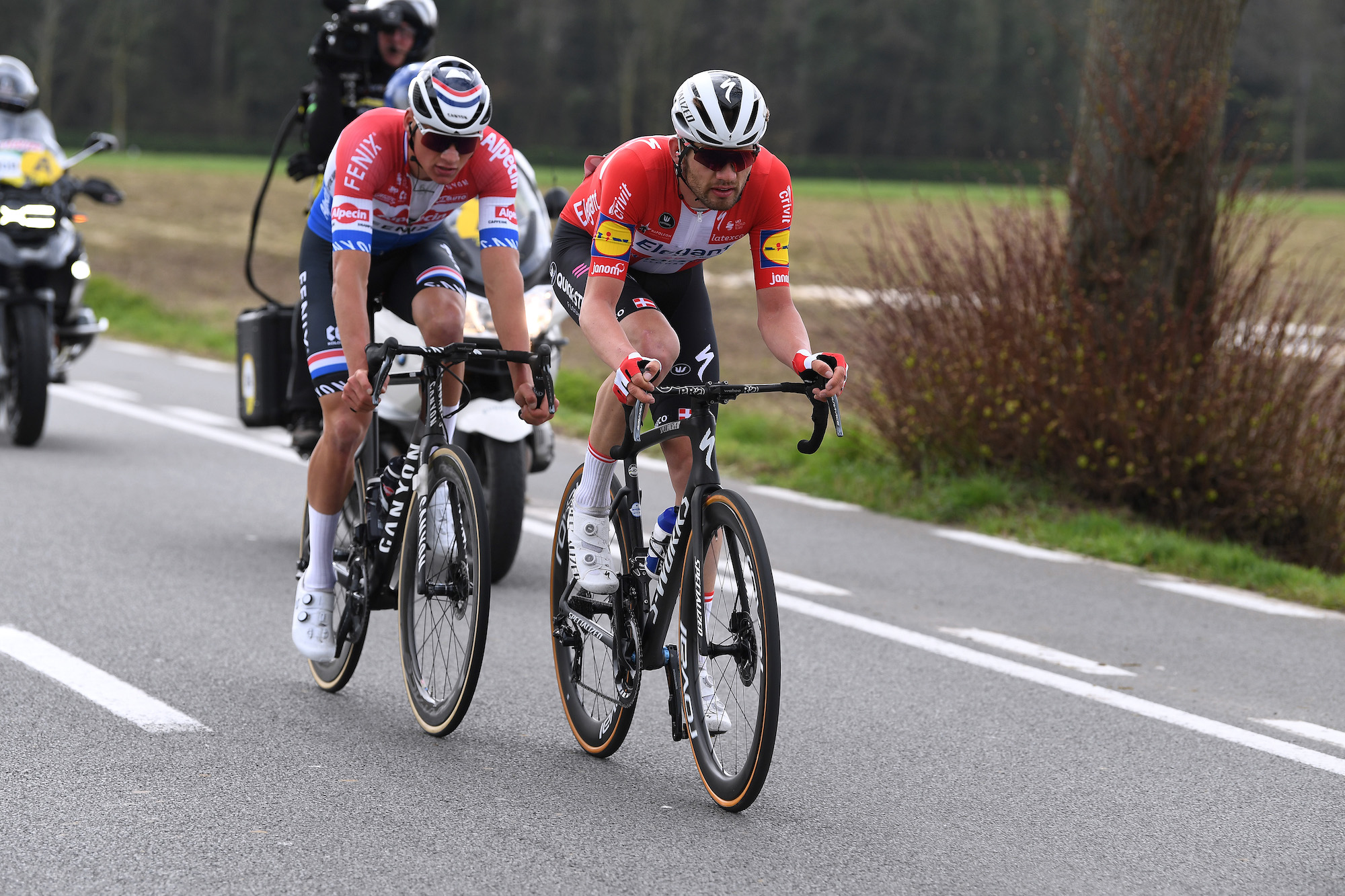
For most of the spring, we’ve talked about Deceuninck - Quick-Step in the collective, a team that doesn’t win with one outstanding individual, but rather through collective strength and tactics.
But Kasper Asgreen won the Tour of Flanders as an outstanding individual, with the kind of performance that suggests this result was no one-off, but the first Monument win of an emerging star.
Following his performance to win E3 Saxo Bank classic last week, perhaps we should have seen this coming. Although we did not see him ride head-to-head against Van der Poel and Van Aert that day, as he spent most of the endgame out in front in a powerful solo move, the way he motored over the climbs that day, and still had the legs for one more race-winning attack after being caught, was indicative of a special talent.
Given how Van Aert and Van der Poel have so spectacularly burst onto the scene over the last couple of years, it’s easy to overlooked Asgreen’s own successes in that time -victory at E3 Saxo Bank followed a Kuurne-Brussels-Kuurne win last year, and he was also second on his Tour of Flanders debut two years ago.
It might also come as a surprise to hear that, at 26, he’s also the same age as Van der Poel and Van Aert. These three riders could be duking it out on the cobbles for years to come.
The Big Three all fall away
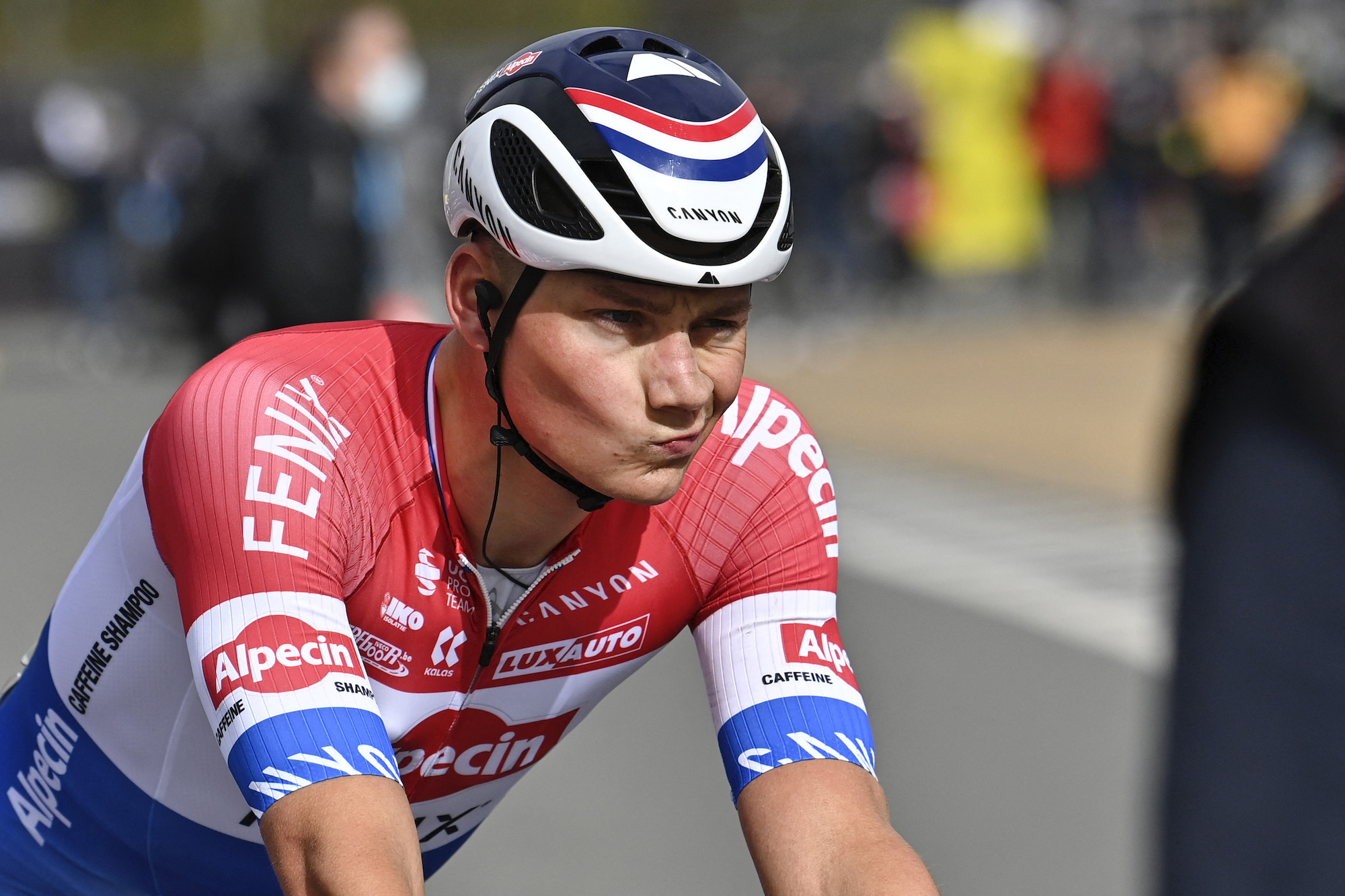
While this was not a Tour of Flanders of spectacular attacks and tactical intrigue, it was an absorbing, tense race that featured several jaw-dropping moments, as one-by-one all three of the pre-race favourites cracked.
Julian Alaphilippe (Elegant - Quick-Step) was first to blow, when he was distanced from a chasing group on the Oude Kwaremont, despite having earlier launched powerful attacks on both the Koppenberg and Kruisberg.
Further up the climb, Van Aert was then dropped by Van der Poel and Asgreen. He looked absolutely spent, weaving across the road as if he was struggling to keep pedalling at all, displaying a weakness that we’ve rarely seen from him.
Then at the line, the biggest shock of all occurred when Van der Poel lost the sprint. The scenario was uncannily similar to last year’s finish, with Van der Poel leading his companion into the final kilometre before slowing down and frequently looking over his shoulder in anticipation of the sprint; only this time his companion was Kasper Asgreen rather than Wout van Aert, who was, on paper, a much weaker sprinter.
Also like last year, the two launched their sprints at virtually the same moment, with Van der Poel initially holding a small advantage. But then, just meters from the line, Van der Poel ran out of gas, sitting up the moment Asgreen edged past him, and losing a sprint he seemed certain to win.
It was as memorable a finish as last year’s photo finish between Van der Poel and Van Aert, and an extraordinary end to another vintage edition of the Tour of Flanders.
Van Vleuten repeats feat of 10 years ago
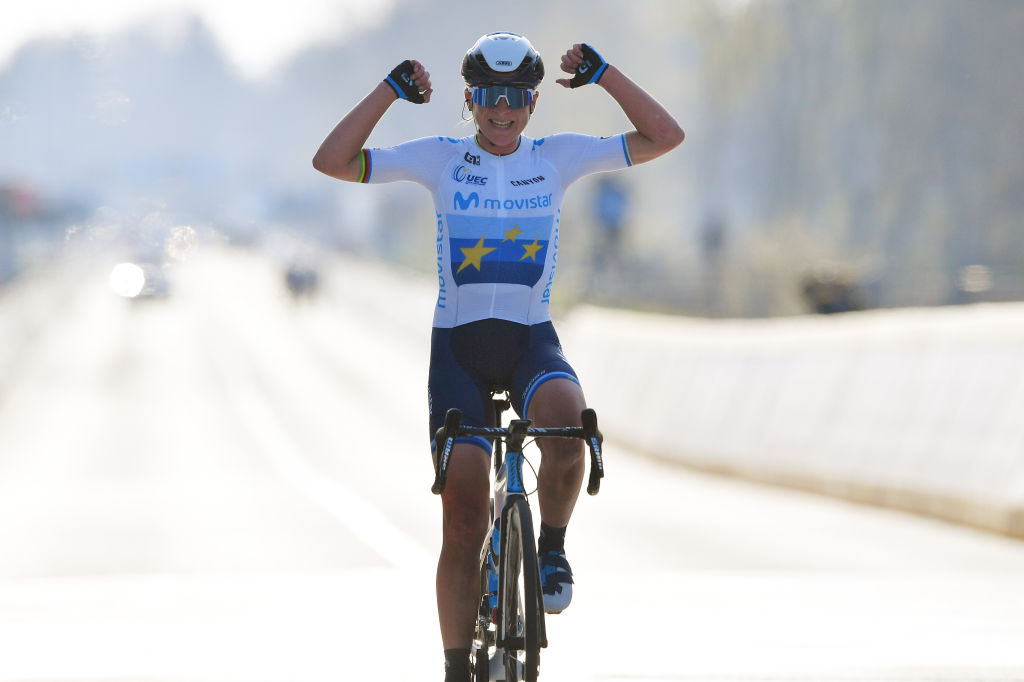
This time ten years ago, a 28-year-old Annemiek van Vleuten landed the biggest result of her short career with victory at the Tour of Flanders.
Since then she’s won pretty much every other race available to her in women’s cycling, and grown in stature to not only become one of the best cyclists of her generation, but also one of the best of all-time.
But, despite coming close on several occasions, and making the top five on another six occasions, she never added a second Flanders title — until this year.
Having shown her form with victory at Dwars door Vlaanderen, everyone knew that they had to be wary of the Movistar rider’s attacks, but nobody had any answer to the move she made on the Paterberg. Despite having to lift a hand onto the barrier in order to balance herself on the steepest gradients, she was a class above everyone else on the climb, and she carried a gap of several seconds going over the top.
This is the kind of situation that she has won from so often in the past, and unsurprisingly she was able to time trial her way to the finish, despite a powerful group chasing her behind.
She might now be 38, and spent over a decade at the top of the sport, but there’s still no stopping Annemiek van Vleuten.
No-one has any answer to Van Vleuten’s power
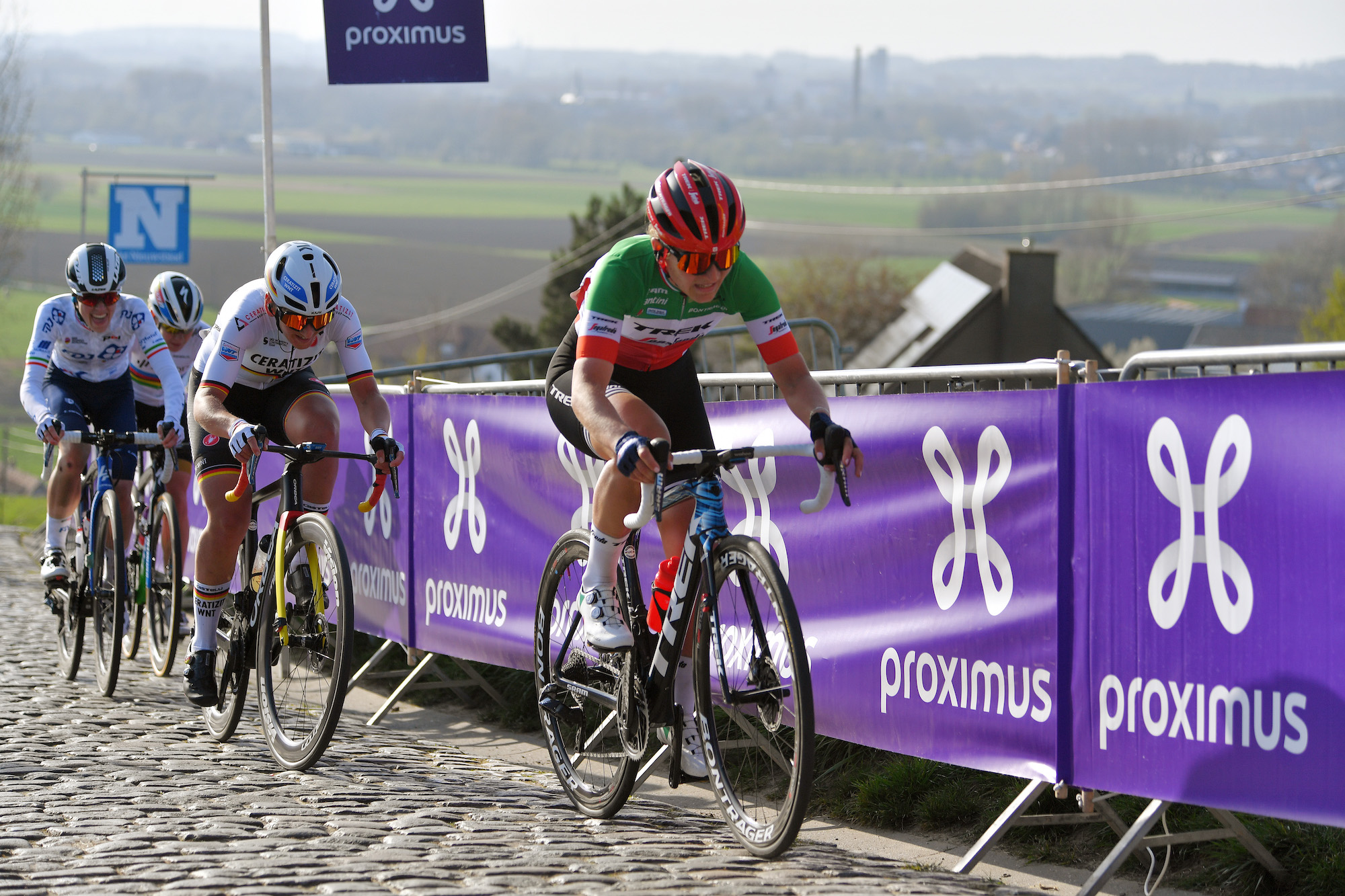
Behind Van Vleuten was a group of seven riders who were unable to go with the Dutchwoman on the Paterberg, but remained intact to seal the 2nd-7th placings.
Although Marta Cavalli (who had her FDJ teammate Cecille Utrup Ludwig in the group) did not take any turns, and Elisa Longo Borghini (Trek-Segafredo) was initially reluctant to contribute, the group generally worked well together. Even with the extra help of those two riders, bringing back Van Vleuten in this kind of form would probably have been impossible.
SD Worx had two riders in the group in Anna van der Breggen and Demi Vollering, but ultimately will be disappointed with their eighth and fifth finishes respectively, and failed to control the race in their usual way with both Amy Pieters and defending champion Chantal van den Broek-Blaak both underperforming.
>>> Mathieu van der Poel: ‘I started a good sprint, but immediately felt the legs were rough’
Borghini’s decision not to take turns in the chase for Van Vleuten may also have been a mis-step for Trek-Segafredo, who faded away after Audrey Cordon-Ragot put them in a strong position by spending several kilometres alone at the front of the race earlier on. Lizzie Deignan and Ellen van Dijk were likely too far back to come back into contention by this point in the race, so the team’s only real hope was for Borghini to go all in.
As the quickest sprinter in the group, Lisa Brennauer (Ceratizit-WNT) took second place, and must have mixed feelings about that result — delight at claiming her highest ever finish at the Tour of Flanders, but ruefulness at missing out on such a great chance of winning it.
Grace Brown (Bike-Exchange) rounded off the podium in third, in what was the latest step into her transformation as a rider for the cobbles following victory at Oxyclean Classic Bruge-De Panne earlier this spring.
Alex Ballinger is editor of BikeBiz magazine, the leading publication for the UK cycle industry, and is the former digital news editor for CyclingWeekly.com. After gaining experience in local newsrooms, national newspapers and in digital journalism, Alex found his calling in cycling, first as a reporter, then as news editor responsible for Cycling Weekly's online news output, and now as the editor of BikeBiz. Since pro cycling first captured his heart during the 2010 Tour de France (specifically the Contador-Schleck battle) Alex covered three Tours de France, multiple editions of the Tour of Britain, and the World Championships, while both writing and video presenting for Cycling Weekly. He also specialises in fitness writing, often throwing himself into the deep end to help readers improve their own power numbers. Away from the desk, Alex can be found racing time trials, riding BMX and mountain bikes, or exploring off-road on his gravel bike. He’s also an avid gamer, and can usually be found buried in an eclectic selection of books.
